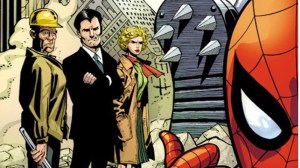Legion represented a significant turning point for superhero television. The series, developed by Noah Hawley, immediately distinguished itself by prioritizing psychedelic visuals and surrealist storytelling above all else. Legion followed David Haller (Dan Stevens), the powerful mutant son of Charles Xavier, and presented his story through the unreliable filter of his own mind. Because of that, the show treated his diagnosed schizophrenia as the very fabric of its reality, intentionally disorienting viewers and forcing them to question what was real versus what was a manifestation of David’s fractured psyche. This approach made for a challenging and deeply rewarding viewing experience, unlike anything else in the genre.
Videos by ComicBook.com
The show’s defining characteristic was its unapologetic weirdness. Legion transformed its underrated avant-garde style into its primary narrative language, translating complex psychological concepts into unforgettable and often bizarre on-screen sequences that became its trademark. It consistently pushed the boundaries of television with psychic rap battles, silent film interludes, and jarring animated segments. These moments served as a direct representation of the chaos within David’s mind, grounding the show’s most abstract ideas in a powerful emotional truth and cementing its status as a cult classic. Here are our picks for the eight weirdest episodes of Legion.
8) “Chapter 14” (Season 2, Episode 6)

The second season episode “Chapter 14” completely detours from the central narrative to explore the comic book concept of the multiverse. In the wake of a devastating loss, the plot splinters into a series of bleak alternate-reality vignettes that illustrate the different paths David Haller’s life could have taken. These standalone stories are united by their melancholy tone, offering glimpses of David as a catatonic homeless man, a drug-addicted burnout who finds a moment of happiness before overdosing, and an immensely powerful but emotionally empty billionaire who runs his empire from a solitary throne.
The weirdness of “Chapter 14” stems from its unconventional structure as a disorienting character study. By stepping away from the ongoing story, the episode forces the audience to confront the core tragedy of David’s existence, implying that pain and loss are his destiny in nearly every timeline. The stark and often depressing nature of these alternate lives creates a unsettling portrait of a man trapped by his own power and illness, making for one of the show’s most poignant chapters.
7) “Chapter 22” (Season 3, Episode 3)
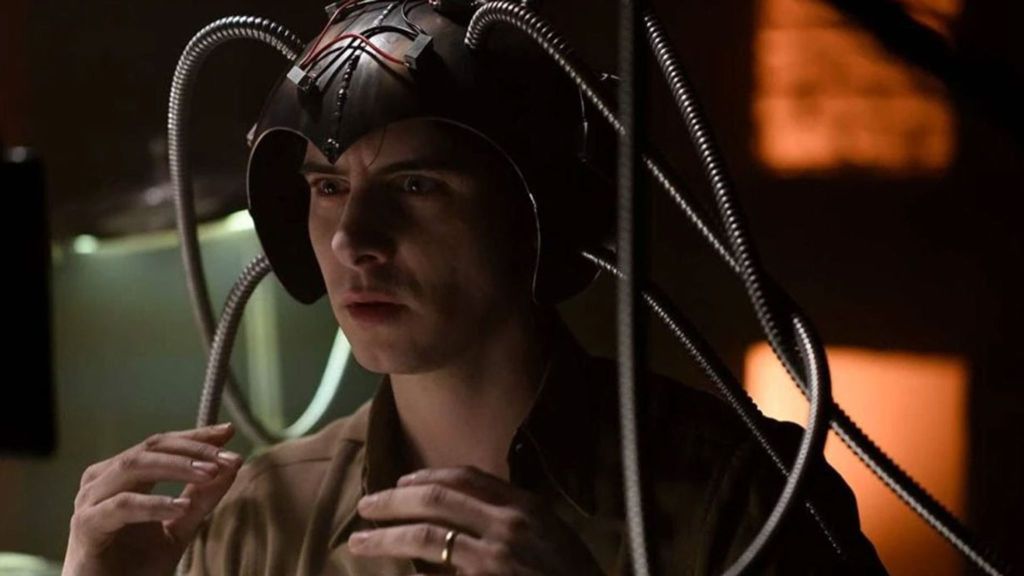
While many episodes of Legion derive their strangeness from chaotic energy, “Chapter 22” is weird because of its stark minimalism. The episode travels into the past to tell the origin story of how David’s parents, a post-war Charles Xavier (Harry Lloyd) and Gabrielle Haller (Stephanie Corneliussen), met in a mental institution. The entire narrative is presented as a highly stylized fairy tale, employing minimalist sets, a detached narrator, and a dreamlike atmosphere that makes a crucial piece of backstory feel like a strange and unsettling storybook.
The episode’s surreal quality is its greatest strength, transforming a key piece of X-Men lore into something that feels both intimate and mythic. The asylum is depicted as a memory palace, with events unfolding in a way that feels emotionally true rather than factually precise. This unique presentational style makes the tragedy of Gabrielle’s mental decline and Charles’ fateful encounter with the Shadow King all the more haunting, proving the show could be just as weird in its quiet moments as it was in its loud ones.
6) “Chapter 11” (Season 2, Episode 3)

The episode “Chapter 11” finds its weirdness through its structure as a psychological horror story. A psychic virus, manifesting as a chattering teeth delusion, begins to infect the minds of the main characters at Division 3. The affliction traps each of them inside a personalized mental maze, forcing them to confront their anxieties and fears in a surreal landscape. The narrative constantly cross-cuts between these different mental prisons as the characters are stalked by a monstrous Minotaur, a physical manifestation of their shared delusion.
The episode cleverly uses its strange premise to explore the inner lives of its supporting cast, from Kerry Loudermilk’s (Amber Midthunder) fear of aging to Ptonomy Wallace’s (Jeremie Harris) obsession with control. The escalating sense of dread and the repeating nature of the delusions create an unsettling experience that is both frightening and revealing. It is a fantastic example of the show using its weirdest concepts to perform deep and effective character work, showing how their minds process fear.
5) “Chapter 26” (Season 3, Episode 7)

The series finale of Legion is a complete subversion of audience expectations, as a climactic world-ending psychic war between David and the Shadow King is replaced by a series of full-blown musical numbers. That’s right, the apocalypse is averted through song. The episode features David and his mother Gabrielle performing a heartfelt cover of Blue Öyster Cult’s “(Don’t Fear) The Reaper,” followed by a group singalong of “What’s So Funny ‘Bout Peace, Love, and Understanding?” that brings the conflict to a close.
The decision to swap a massive final battle for a gentle concert is perhaps the show’s boldest creative swing. The choice recontextualizes the entire series, reinforcing that the path to healing and resolution lies in empathy and connection, not violence. It is a strange, surprisingly emotional, and entirely fitting conclusion for a show that consistently defied convention.
4) “Chapter 7” (Season 1, Episode 7)
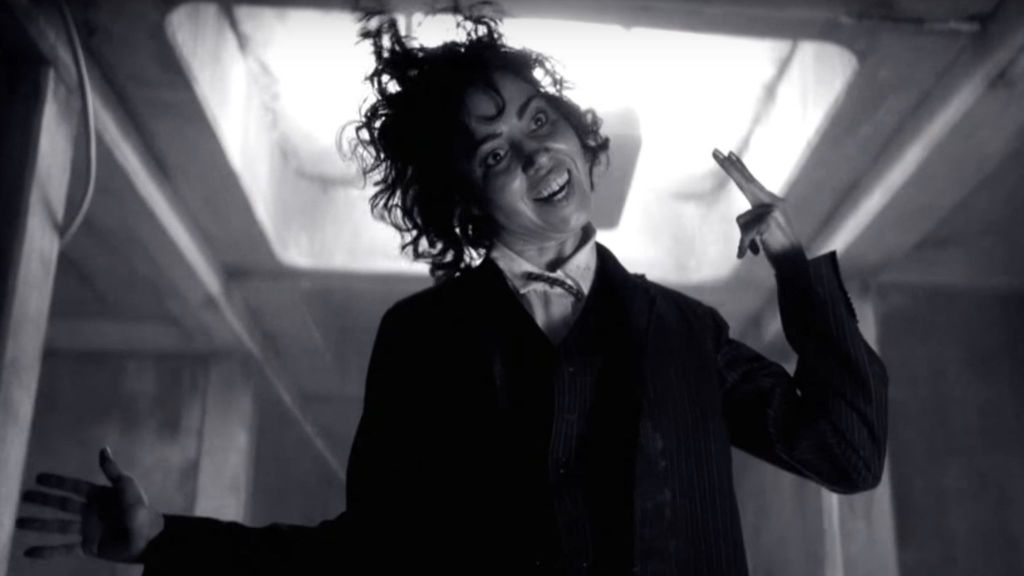
The seventh chapter of Legion contains one of the most jarring stylistic shifts in the entire series. In the middle of a tense psychic battle taking place in the astral plane, the episode abruptly transforms into a black-and-white silent film. The sequence is complete with a jaunty score, title cards for dialogue, and an over-the-top performance from Lenny Busker (Aubrey Plaza) as the villain, styled after the German Expressionist horror films of the 1920s.
The segment provides a moment of surreal levity in an otherwise serious confrontation. It shows the heroes trying to navigate a world where the rules of reality have been rewritten into a different cinematic language. The weirdness of this silent film interlude is a perfect example of Legion‘s creative fearlessness and its willingness to break its own format for the sake of an unforgettable visual idea. It’s a bold choice that highlights the unpredictable nature of the show’s universe and the dangers of characters capable of changing human perception.
3) “Chapter 20” (Season 3, Episode 1)

The opening episode of Season 3 of Legion presents a complete tonal reset. For starters, David is introduced as the serene white-robed cult leader of a psychedelic hippie commune. His devoted followers live in a state of blissful ignorance, drinking a substance called “the juice,” which is liquid from David’s brain, to stay connected to his power. The entire setting is a bizarre mix of 1960s counter-culture aesthetics and unsettling cult dynamics that immediately sets the final season apart from what came before.
An additional layer of strangeness comes from the introduction of the time traveler, Switch (Lauren Tsai), who navigates a glowing blue corridor that exists outside the normal flow of time. Her attempts to understand David’s commune provide the audience with a window into this new status quo. The episode is a disorienting reintroduction to the world of Legion, establishing that its final season would be its most bizarre and unpredictable and throwing viewers directly into a strange new reality.
2) “Chapter 25” (Season 3, Episode 6)
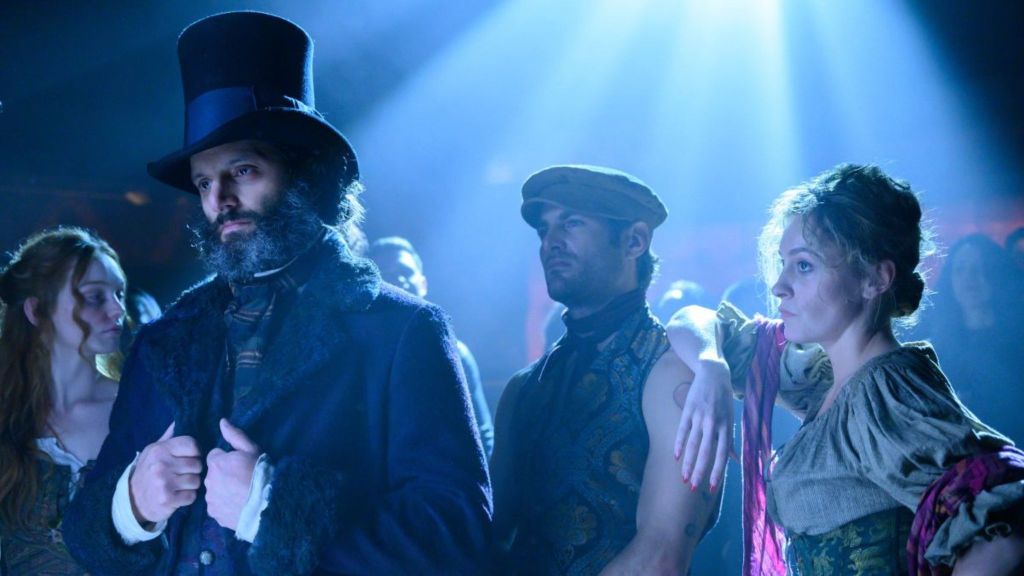
The episode “Chapter 25” is a prime example of Legion‘s surreal narrative logic, unfolding almost entirely within the strange confines of the astral plane. Its main plot follows Syd Barrett (Rachel Keller) as she is raised from infancy to adulthood in a matter of minutes by Oliver Bird (Jemaine Clement) and Melanie Bird (Jean Smart). This bizarre, fast-forwarded fairy tale is a strange and visually inventive exploration of Syd’s character, but the episode’s centerpiece elevates it to legendary status among fans of the series.
The philosophical conflict between Oliver and an Astral Plane predator, The Wolf (Jason Mantzoukas), culminates in one of the most famous sequences of the series: a full-fledged psychic rap battle. The two characters trade elaborate verses in a stunningly produced musical number that is as impressive as it is completely unexpected. It is a moment of pure, unapologetic creative weirdness that perfectly encapsulates Legion’s singular vision.
1) “Chapter 19” (Season 2, Episode 11)
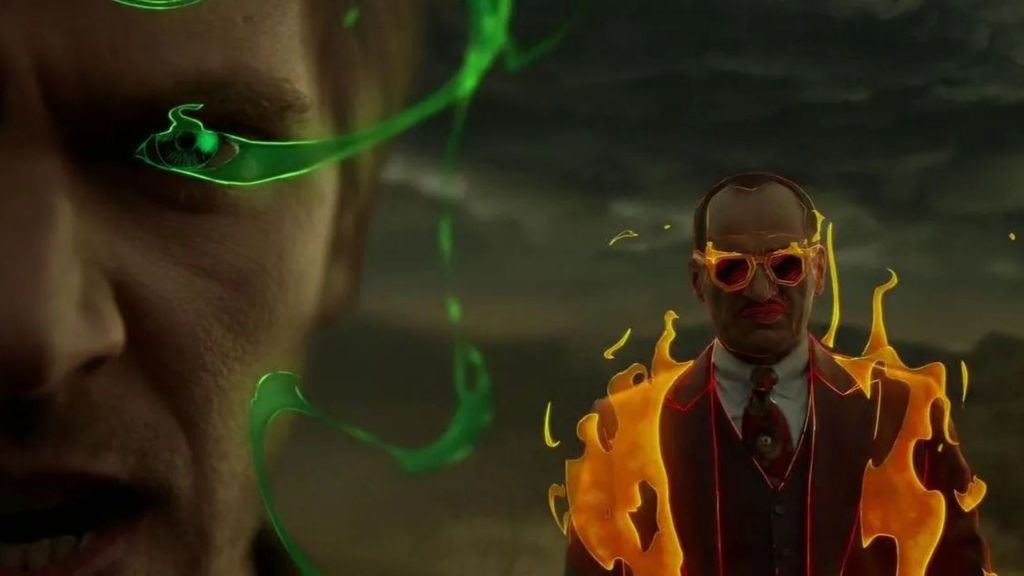
The Season 2 finale, “Chapter 19,” is the weirdest and most structurally ambitious episode of the entire series. It abandons a linear narrative completely, presenting itself as a surreal trial taking place inside David’s mind. His former allies put him on trial for his future crimes, but the proceedings are constantly interrupted by bizarre cutaways and non-sequiturs that reflect David’s deteriorating mental state. He is his own prosecutor, defender, and judge, all at once, creating a dizzying internal conflict.
The episode itself is a whirlwind of surreal concepts. It features a Schoolhouse Rock-style animated segment that explains different types of delusions, a stunning musical number where David and Farouk (Navid Negahban) perform a duet of The Who’s “Behind Blue Eyes,” and documentary-like testimony from characters who are not physically present. The narrative is fragmented, confusing, and brilliant, a perfect representation of a powerful mind collapsing in on itself. It is the ultimate expression of the show’s style and the definitive weirdest episode of Legion.
What is your favorite weird moment from Legion? Let us know in the comments!

